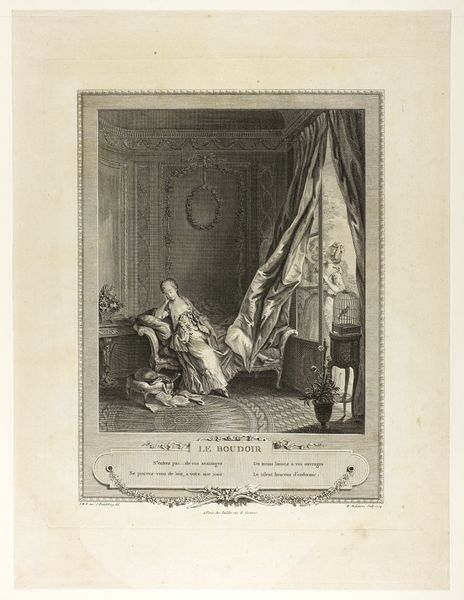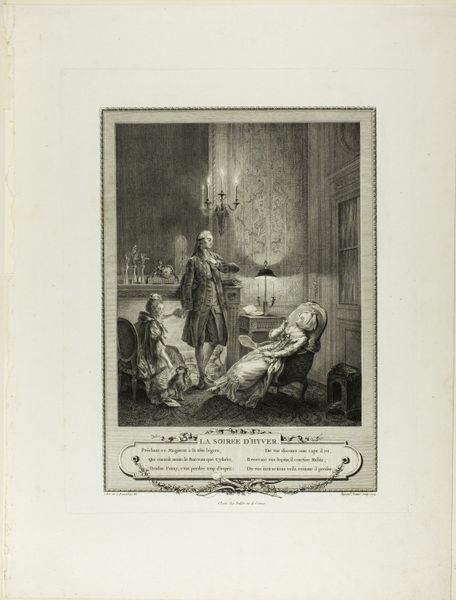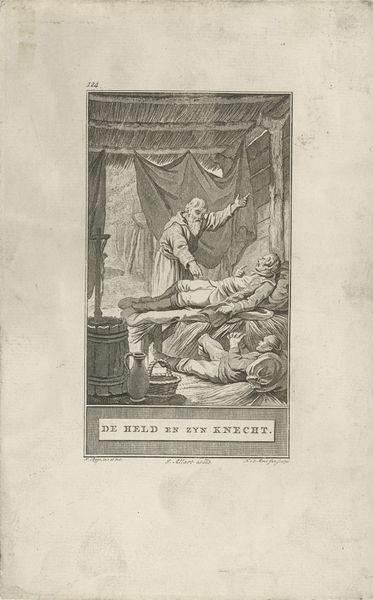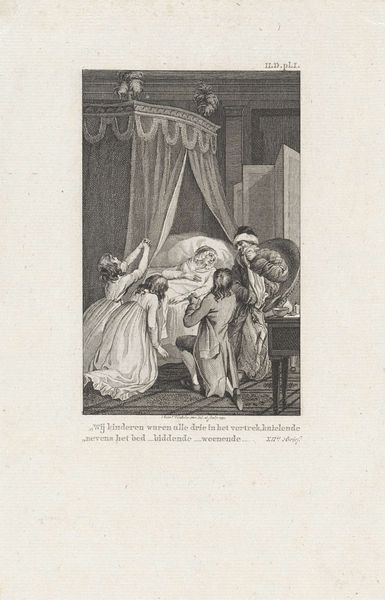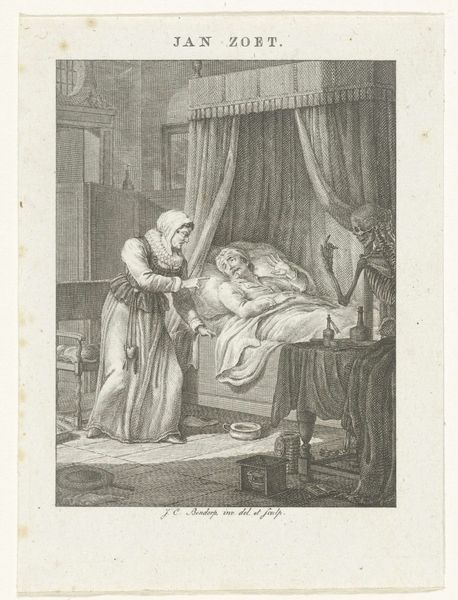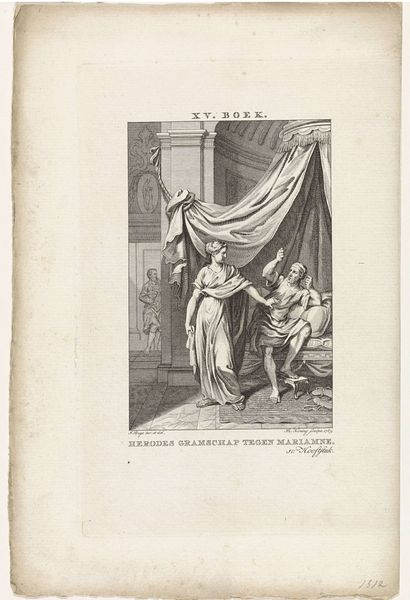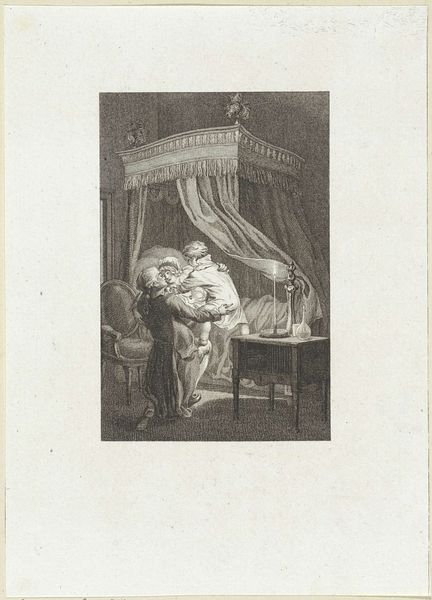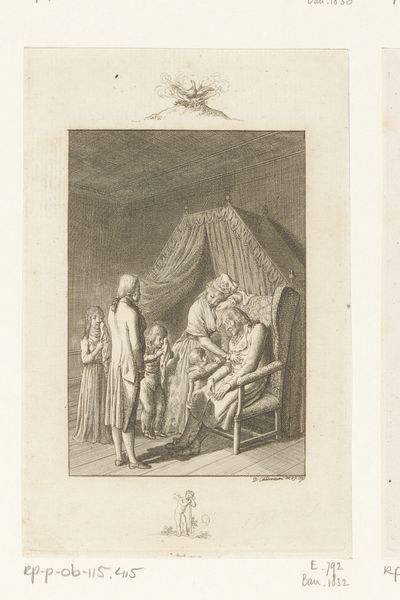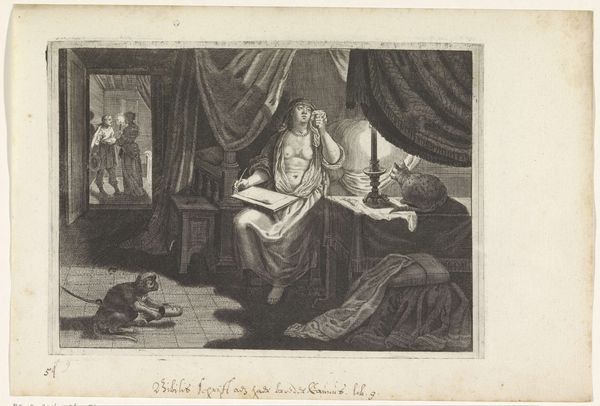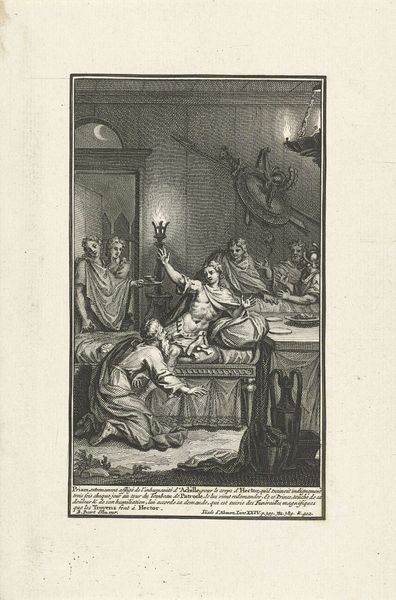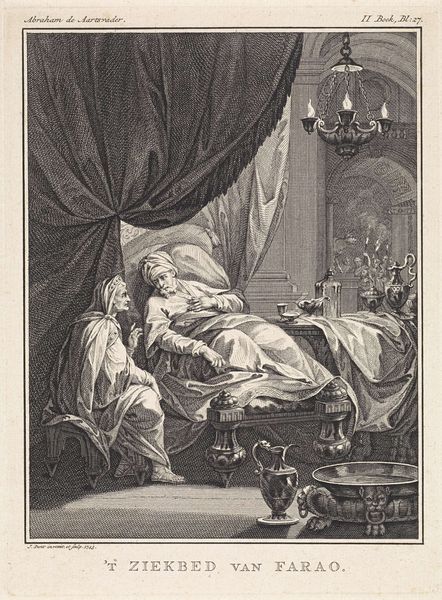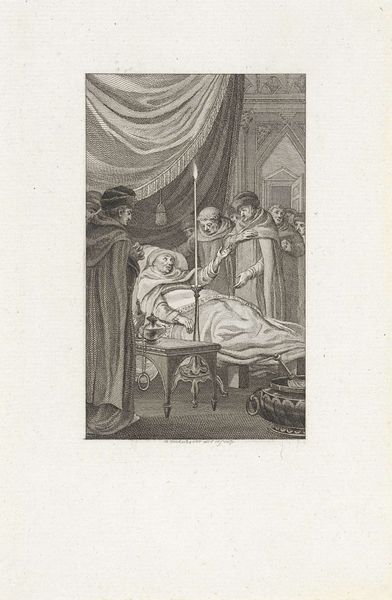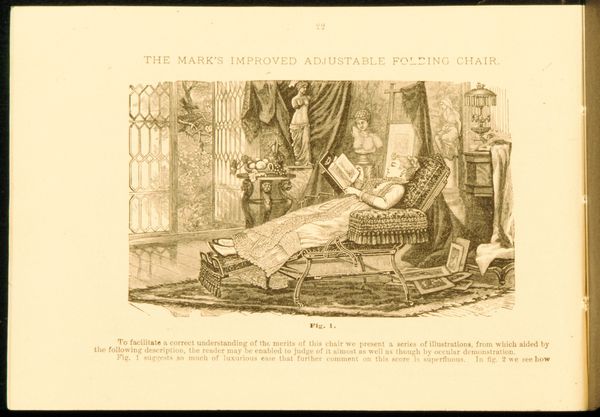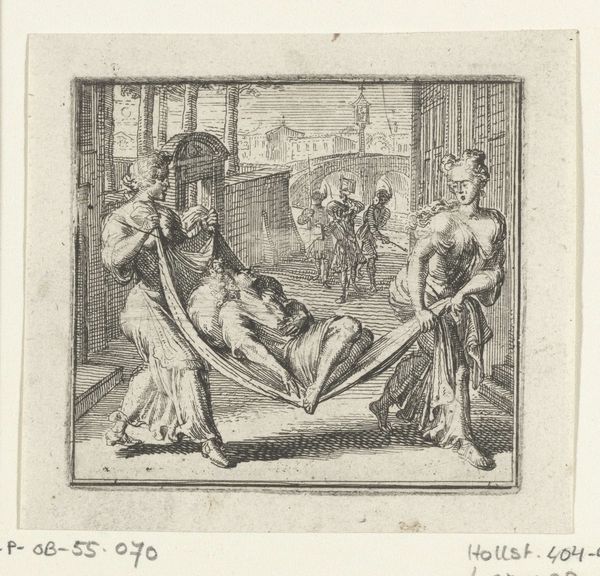
Dimensions: height 228 mm, width 152 mm
Copyright: Rijks Museum: Open Domain
Curator: Here we have Theodoor Koning's 1779 engraving, "Jacob Receives Isaac's Blessing," currently held at the Rijksmuseum. It's an arresting depiction of a pivotal moment in the Book of Genesis. What's your initial reaction? Editor: Wow, the tension in this scene just jumps out. There’s Isaac, blind and vulnerable in bed, laying his hands on Jacob… and that sly figure peeking in the doorway! It’s like a soap opera in monochrome. Makes you wonder, who are we meant to sympathize with here? Curator: Precisely. Koning captures the nuances of deception and power dynamics inherent in this narrative. Jacob, aided by his mother Rebecca, is effectively stealing the blessing meant for his brother Esau. This act has profound consequences, shaping the destiny of nations and sparking intergenerational conflict. Editor: It’s interesting, the way Koning frames Rebecca, sort of half-hidden in the doorway, but clearly orchestrating everything. She seems almost more powerful than Isaac himself, pulling the strings in this elaborate familial power-play. Curator: Koning's baroque style elevates the drama. The heavy drapes, the stark contrast between light and shadow—they all contribute to a sense of theatricality. This wasn't just a historical record; it was a moral lesson about ambition, fate, and perhaps even a critique of patriarchal structures. Consider the role of women in influencing religious and political landscapes. Editor: I see that. And those little details, like the water pitcher on the floor...it’s a reminder that even sacred moments are steeped in the everyday. Plus, look closely and you’ll see Esau is already returning from the hunt! Talk about timing… or the lack thereof. Curator: Right, his absence is almost a character in itself. Koning uses that small vignette outside of the bed chamber to show us that destiny will occur and unfold. Jacob's deception succeeds precisely because of these well-orchestrated circumstances, calling into question divine intention versus human agency. Editor: Yeah. It's a good reminder that behind every seemingly pious act, there are always hidden agendas and messy human desires at play. All the elements Koning has deployed build a moment ready to shatter in conflict. I’m walking away with a new perspective on these ancient family dramas. Curator: Me too. Examining this engraving, we can really see the legacy of power, betrayal, and how societal biases get baked into our history—and ourselves. It urges a deeper look beyond the surface to acknowledge these themes, allowing us to interrogate those structures critically in the present.
Comments
No comments
Be the first to comment and join the conversation on the ultimate creative platform.
